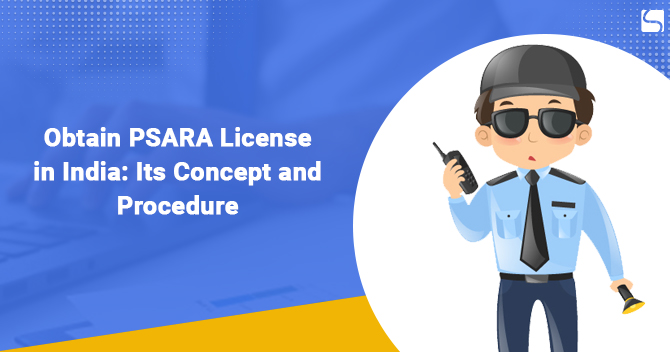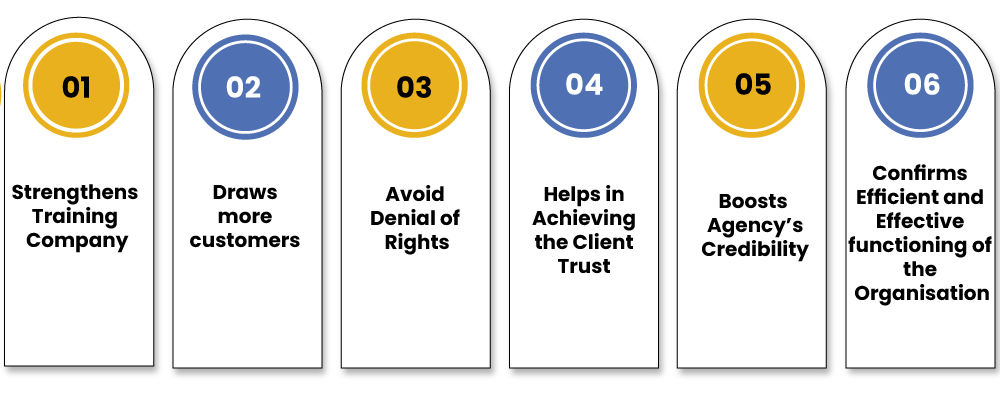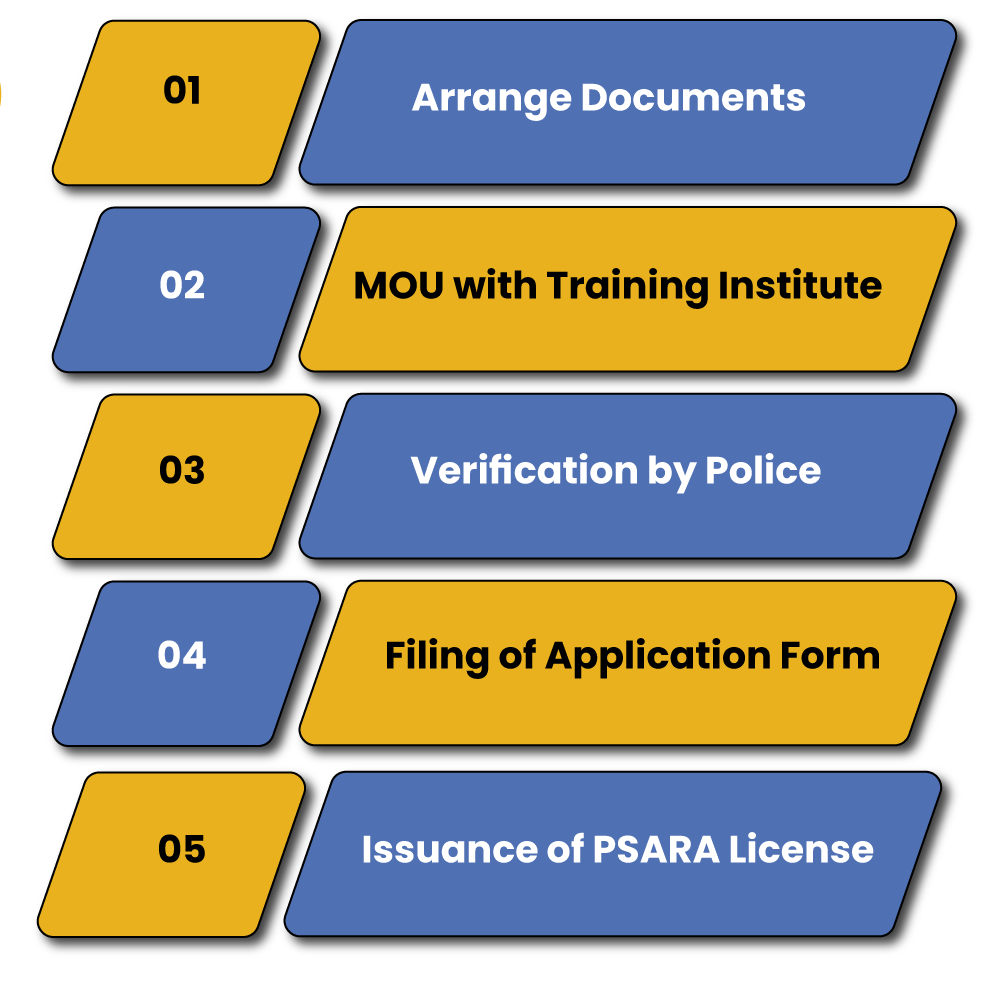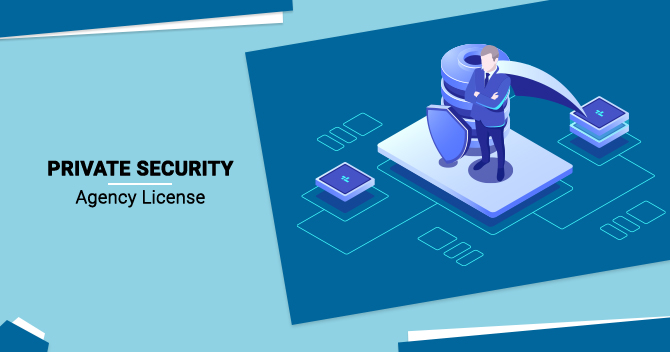Concept and Procedure to Obtain PSARA License in India

Shivani Jain | Updated: Oct 30, 2020 | Category: PSARA
In India, the demand for Private Security Agency Services is continuously increasing at a mounting rate due to rising urbanization. Also, the real and apparent risk of terrorism and crime made the belief that safety measures are unsatisfactory.
Moreover, the PSA industry is backed by improved economic setting and building construction activity as well.
In this blog, we will discuss about the concept and process to obtain PSARA License in India.
Table of Contents
Concept of PSARA License
The term “PSARA License” denotes a prerequisite for starting a private security agency business in India. Further, the term PSA or Private Security Agency signifies an entity that is involved in the business of offering security services to individuals and business establishments.
The operations and business activities of a PSA are governed and regulated by the provisions of the Private Security Agencies Regulation Act 2005[1]. The same is popularly known as PSARA.
Moreover, it shall be relevant to state that the scope of PSARA permit is restrictedonly to a single state. That means it does not have a nationwide coverage. Also, the applicants need to obtain PSARA License from the State Controlling Authority of the respective state.
Growth of PSARA License in India
As per a report published by “FICCI”, the Indian Personal Security Agency industry was anticipated to cross Rs 57000 crores (USD 8.8 billion) in the year 2016. Further, the same is likely to touch Rs 99000 crores (USD 15.2 billion) by the end of 2020, and Rs 1.5 lakh crores (USD 23.1 billion) by 2022.
Also, it shall be taken into consideration that the PSA Industry ranks high at the global platform and employs around 8.9 million people every year. Also, the same has the potential and capability to employ 3.1 million more by the end of 20221.
Moreover, as per a study and research conducted by “The Guardian” , the global Private Security Agency[2] market was at USD 180 billion in the year 2017, and is predicted to be at USD 240 billion by the end of 2020.
However, the Indian Private Security Industry (PSI) is anticipated to grow faster at about 20 percent CAGR (Compound Annual Growth Rate) owing to the fluctuating landscape of the sector in India.
Eligibility to Obtain PSARA License in India
The entities that are eligible to obtain PSARA License in India are as follows:
- Sole Proprietorship
- Partnership Firm
- Private Limited Company
- One Person Company
Benefits of PSARA License
The benefits of obtaining PSARA License are as follows:

- Strengthens Training Company
- Draws more customers
- Avoid Denial of Rights
- Helps in Achieving the Client Trust
- Boosts Agency’s Credibility
- Confirms Efficient and Effective functioning of the Organisation
Documents Required to Obtain PSARA License in India
The documents required for obtaining PSARA License in India are as follows:
- ID proofs for all the employees
- ID proofs for all the directors
- Address proof for the Registered Office of the Agency.
- An affidavit acquired under the provisions of PSARA 2005.
- Brand Logo of the PSA
- PAN Card for all the Promoters.
- Two latest passport-sized photographs for all the promoters.
- Details concerning registration with the Service tax department.
- Certificate issued under the provisions of the Shops Act.
- Employee State Insurance (ESI) Registration.
- Provident Fund (PF) Registration.
- Affidavit for undergoing Security Training.
- Armed License
- Character Certificate for all the employees.
- A copy of Income Tax Return filing for each director.
- A copy of COI (Certificate of Incorporation) for the company.
- Duly signed MOA (Memorandum of association) with the training institute.
- Details regarding all the Security Guard appointed.
Procedure to Obtain PSARA License in India
The steps involved in the procedure to obtain PSARA License in India are as follows:

Arrange Documents
In the first step, the directors of the applicant company needs to arrange and gather all the documents mentioned above for starting the process of registration.
MOU with Training Institute
As per the next step, the applicant company needs to compulsorily enter into a Memorandum of Understanding with the institute that trains Security Guards.
Also, it shall be taken into consideration that, it is mandatory for the said institute to obtain prior approval from the State Controlling Authority. Moreover, these training programs offers special relaxation and flexibility to ex-servicemen.
Verification by Police
Now, the applicant requires to apply for Police Verification in Form 1. Also, it shall be relevant to note that in case the applicant is a Partnership Firm, then each director needs to file a separate form for verification.
Filing of Application Form
After the completion of Police Verification, the applicant will need to file an application for License with the State Controlling Authority of PSARA.
Issuance of PSARA License
After the receipt of the application form, if the State Controlling Authority is satisfied with the details and documents submitted, it will issue a PSARA License to the respective applicant. Also, the process of PSARA License takes around 55 to 60 business working days.
Fees to Obtain PSARA License in India
The fees to obtain PSARA License in India can be summarised as:
- Rs 5000 for a Single District
- Rs 10000 for 5 Districts
- Rs 25000 for a whole State
However, it shall be taken into consideration that in Karnataka the fee for obtaining PSARA License for a whole state is Rs 50000.
Validity of PSARA License
In India, the PSARA license is valid for a period of 5 years, starting from the date of the issuance of the license.
However, there are some states, such as Uttarakhand, Madhya Pradesh, and Chhattisgarh, which provides the validity of only one year.
Conclusion
In a nutshell, we can state that PSARA License is must for starting a Private Security Agency in India. Further, all the operations of a PSA are managed and governed by the provisions of the PSARA 2005.
In case of any other doubt or dilemma, reach out to Swarit Advisors.
Also, Read: The Private Security Agencies – Guidelines under PSARA Act 2005














